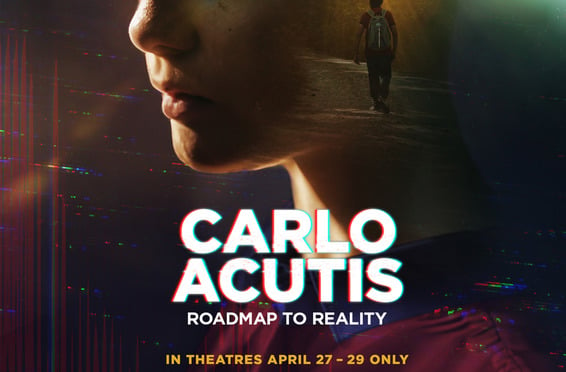Search
A Saint for Our Times
-
 April 14, 2025Tim Moriarty has played in several shows – he appeared as a priest in “Blue Bloods” and portrayed the NSA deputy in all four seasons of the CBS/Netflix series “Manifest.” Although he has enjoyed his career as an actor, he wanted to have more influence on the content, prompting him to pursue a career as a writer and producer. He founded Castletown Media in 2017, and in recent years, he has released several faith-based films in theaters, including Mother Teresa, “No Greater Love,” and “Jesus Thirsts” on the Eucharist.
April 14, 2025Tim Moriarty has played in several shows – he appeared as a priest in “Blue Bloods” and portrayed the NSA deputy in all four seasons of the CBS/Netflix series “Manifest.” Although he has enjoyed his career as an actor, he wanted to have more influence on the content, prompting him to pursue a career as a writer and producer. He founded Castletown Media in 2017, and in recent years, he has released several faith-based films in theaters, including Mother Teresa, “No Greater Love,” and “Jesus Thirsts” on the Eucharist.
“The film is called Carlo Acutis – Road Map to Reality. Its genesis truly lies in Southeast Texas,” he shares. When someone established a youth camp in Beaumont, Texas, Bishop Toup proposed naming the chapel after Blessed Carlo Acutis. “He didn't know anything about Carlo, but after reading a book about him, he was so moved that he believed there should be a film about this young man.”
The man wanted to support this story, but it needed to be ready for his canonization, “which means we had just over a year to finish it. We worked very closely with Mrs. Acutis and the entire family, speaking to many people who knew Carlo, which was an incredible blessing.”
The result is a 95-minute documentary that explores the life of future saint Carlo Acutis and follows a group of teenagers on a phone-free pilgrimage to his tomb. The teens are captivated by Carlo, who loved video games and was an ordinary teenager, while also being drawn to the Eucharist and his Catholic faith from a young age.
 Tim MoriartyMoriarty is optimistic about the future of Catholic movies: “I think that the ‘mainstream’ is sort of dissolving, and people are starting to say, ‘let's find stories that reflect truth, goodness, and beauty.’” Data seems to support a growing interest in faith-based films, “but also films that are just oriented by a worldview informed by faith, something that is open to transcendence, something that conveys hope,” he states.
Tim MoriartyMoriarty is optimistic about the future of Catholic movies: “I think that the ‘mainstream’ is sort of dissolving, and people are starting to say, ‘let's find stories that reflect truth, goodness, and beauty.’” Data seems to support a growing interest in faith-based films, “but also films that are just oriented by a worldview informed by faith, something that is open to transcendence, something that conveys hope,” he states.
“Roadmap to Reality” not only portrays the life of Carlo Acutis but also explores what he can offer to young people today. One significant issue is screen addiction –the 150 teenagers from North Dakota whom the movie accompanies on their pilgrimage had to leave their phones at home. “There's a real mental health crisis among young people. And we see in this two-week journey that they become more human as they become less digital,” Moriarty explains.
Carlo Acutis, the first millennial saint and often regarded as a digital saint due to his passion for computers (he created a website showcasing all known Eucharistic miracles), serves as a role model in this challenge—how to use technology wisely, how to provide valuable content, and remain aware of whether the device controls you.
For Tim Moriarty, the work on Carlo Acutis’ life was also a blessing: “His life was ordinary… he represents someone who is just doing what's right in front of him, what God has set before him. He approached every little detail with such love and intentionality that his funeral was filled with all sorts of people, including homeless people from the streets of Milan. His parents had no idea why they were even there. But the impact he made was so profound,” he said. That influence persists today: “He directs people back to the sacraments, especially the Eucharist.”
The movie will be in theaters for three days starting on April 27, the day Carlo Acutis will be canonized in Rome. If there’s a great demand in the presales—and the showtimes in Corpus Christi are nearly sold out—the theaters might be able to add a few more days. Later, the movie should be available for streaming.
carloacutisfilm.com
